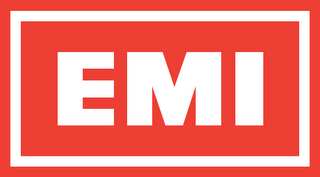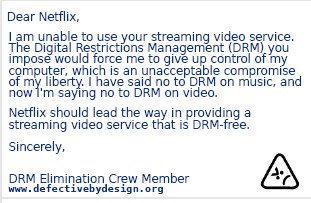 |
|
Copyright Debate: Cotton v. Wu
 The New York Times is hosting a debate on copyright issues and technology between Rick Cotton, general counsel of NBC, and Tim Wu, a professor at Columbia Law School. This should be a a very interesting event. Wu is working to expand access the public domain through programs like AltLaw, while Cotton is a copyright maximalist who has helped NBC fight for stronger copyright laws and more DRM on video content. Round 1: Topic: DRM, Digital Rights Management, creating a war with users or a useful tool? Cotton starts round one by acknowledging the major concern that artist want to get paid and that copyright law allows the use of DRM. Then he stumbles by overstating the purpose and the usefulness of DRM as a silver bullet that will solve distribution problems through noninvasive solutions. Wu responds by pointing out the problems with overzealous DRM like the Sony Root Kit and the fact that most DRM prevents features that users want such as moving their own movies between devices they own. Wu also points out that DRM is being used to cling to outdated distribution models and prevent fans from remixing. Outcome: Slight edge to Wu. I hope that as the week goes on issues like user generated content and free speech will take center stage. Full text of round 1My Response: The only message DRM sends is "we do not like or trust our customers". DRM views the public as the enemy. For those of us on the ground, fighting DRM is a war and consumer rights are the casualties. Get involved in the fight - visit Defective by Design. To speak much is one thing, to speak well, another. -Sophocles Round 1 word count: Cotton 844 Wu 449 Related FFIP articles: Tim Wu - "tolerated lawbreaking" and CopyrightLabels: copyright, DRM, NYT, Rick Cotton, Tim Wu
Sony Misses the Point of DRM Free Downloads
 Sony made an announcement last week that it will now sell DRM free music. However, they've managed to make it as unfriendly to consumers as possible. To obtain the Sony DRM free tracks, you have to first have to go to a retail store to buy a Platinum MusicPass, a card containing a secret code, for a suggested retail price of $12.99. Once you have scratched off the card's covering to expose the code, you will be able to download one of just 37 albums available through the service including Britney Spears' "Blackout" and Barry Manilow's "The Greatest Songs of the Seventies" (both universally recognized as among the 37 best albums of all time). Almost no selection, a higher price point than iTunes and you have to show up to a store. Amazon.com offers 2.9 million DRM-free tracks in MP3 format from: EMI Group Warner Music Group Universal Music Independent record labels Apple's iTunes Store has around 2 million DRM-free albums for $9.99 I am not sure what Sony is thinking, but DRM-free distribution that requires people to go to a store to buy downloads is not a step forward. The Platinum MusicPass sounds like an over priced glorified gift card. Sony did state that online sales are part of their "ultimate plan" but have not released any further information. Sony Listen Up: If you wants to make real waves in the music industry you should consider something better than what everyone else is already offering. How about an online retail site where ALL Sony's music is DRM-free and users get to pay what they think the music is worth. Radiohead has proven that this model is workable for famous artists and Magnatune is making it work for new artists. I would be a lot more likely to open my wallet for that format! Press: InfoWorld with full Details on the Sony DRM free programLabels: DRM, DRM-free, Sony
Avril Lavigne representative bashes RIAA
 A Canadian organization representing several musical artists including Avril Lavigne, Sarah McLachlan, and The New Pornographers has made a very strong statement against the RIAA and DRM. I applaud the coalition for standing up for users and realizing that to succeed in a digital world we need to work with users not against them.
"Lobbyists for major labels are looking out for their shareholders, and seldom speak for Canadian artists. Legislative proposals that would facilitate lawsuits against our fans or increase the labels' control over the enjoyment of music are made not in our names, but on behalf of the labels' foreign parent companies."
The CMCC is united under principles including: Suing Our Fans is Destructive and HypocriticalArtists do not want to sue music fans. The labels have been suing our fans against artists' will, and laws enabling these suits cannot be justified in artists' names
Digital Locks are Risky and Counterproductive (DRM is bad)Artists do not support using digital locks to increase the labels' control over the distribution, use and enjoyment of music or laws that prohibit circumvention of such technological measures. Consumers should be able to transfer the music they buy to other formats under a right of fair use, without having to pay twice. More information about the CMCC (including a more detailed policy statement) is available at www.musiccreators.ca. Labels: CMCC, DRM, RIAA
EMI possibly leaving RIAA
 This is great news for music fans. EMI was the first big label to abandon consumer hated DRM on Itunes and is now making another good business choice by distancing themselves from the suit happy and equally disdained RIAA. Now we just need them to embrace a creative web based business model like Magnatune and we will have a new direction for the future of music. As a reminder EMI is one of the Big 4 in music and has signed many popular artists from multiple genres, including The Beatles, Pink Floyd, Maria Callas, Queen, Legião Urbana, Kraftwerk, Saxon, Iron Maiden, Marillion, Tina Turner, Kate Bush, Frank Sinatra, Coldplay, Roxette, Selena and Garth Brooks. Full story at Arstechnica "One of the Big Four labels is apparently unhappy with its return on investment when it comes to funding industry trade groups such as the IFPI and RIAA. British label EMI, which was recently purchased by a private equity fund, is reportedly considering a significant cut to the amount of money it provides the trade groups on an annual basis. According to figures seen by Reuters, each of the Big Four contributes approximately $132.3 million to fund the operations of the IFPI, RIAA, and other national recording industry trade groups. That money is used in part to fund the industry's antipiracy efforts—including the close to 30,000 file-sharing lawsuits filed by the record labels in the US alone." PS: Look back at our April 1st story, Major Labels Withdraw from RIAA. Maybe it was just early. Labels: DRM, EMI, RIAA
Kindle ridden with DRM and closed format
 Kindle, Amazon's new portable digital book reader, is a case study in how not to make an ebook reader. Here are the problems: 1. Kindle has DRM backed up by abusive contract terms - "You may not sell, rent, lease, distribute, broadcast, sublicense or otherwise assign any rights to the Digital Content or any portion of it to any third party, and you may not remove any proprietary notices or labels on the Digital Content. In addition, you may not, and you will not encourage, assist or authorize any other person to, bypass, modify, defeat or circumvent security features that protect the Digital Content." 2. Kindle violates your privacy - "The Device Software will provide Amazon with data about your Device and its interaction with the Service (such as available memory, up-time, log files and signal strength) and information related to the content on your Device and your use of it (such as automatic bookmarking of the last page read and content deletions from the Device). Annotations, bookmarks, notes, highlights, or similar markings you make in your Device are backed up through the Service." 3. If you use Kindle in a way Amazon does not allow, like circumventing DRM to exercise Fair Use rights, you will lose your books and the software to read them - "Your rights under this Agreement will automatically terminate without notice from Amazon if you fail to comply with any term of this Agreement. In case of such termination, you must cease all use of the Software and Amazon may immediately revoke your access to the Service or to Digital Content without notice to you and without refund of any fees." 4. Kindle charges you to access free content. - Blog subscriptions cost $2 a month. However, you can browse directly to the blog using the "Basic Web" browser?. So they are charging $2 to use RSS. 5. Kindle does not support 99% of major formats - NO PDF, NO DOC, NO RTF, NO JPEG, Although it will convert some of these for $. 10 each through a slow email process. I am not sure I could design a book reader this bad if I tried. The best suggestion I have read for people who are thinking about buying a Kindle is from Kevin Marks:"If you have $400 to spend on a small gadget to read outdoors on, buy yourself an OLPC and give one away to a child elsewhere too ." Labels: DRM, Kindle, Rubbish
Magnatune: An Ethical Alternative to iTunes
 Magnatune Magnatune is a Creative Commons licensed music site that allows you to listen to all their music streaming online for free. If you like the music you can purchase music CD's or download MP3's for for a price of your choosing. Many advocates of strong All Rights Reserved(ARR) copyright claim that ARR copyright is need to help new artist make a name for themselves. Distribution models like Amie Street and Magnatune are challenging this assumption head on. They have a portion of the site dedicated to Why They are Not Evil. Top 5 reasons they are not evil: Musicians get paid: 50% of your purchase price goes directly to the musician, not to labels and their lawyer. Give to your friends: We encourage you to give 3 copies of any music you buy to your friends Remix friendly: Tons of our music, acapellas and samples are available for Remixing at CC Mixter All our 128k MP3s are some-rights-reserved Creative Commons licensed No major labels: we have absolutely nothing to do with major labels or the RIAA No DRM: No copy protection (DRM), you can do what you like with your music, unlike iTunes and Windows-media based web sites.Freedom for IP greatly respects the work done by Magnatune and encourages the development of new business models in the music industry to appropriately reflect our technologically advanced culture. Labels: CC, creative commons, DRM, Magnatune
Netflix DRM, Defective by Design
Google - Taking away your rights with DRM
Google this week has decided to end there "download to own" video program and is taking videos away from consumers who have "purchased" them. If these videos were goods this would be unthinkable. Further more this type of repossession with credit for something you do not want is simply ridiculous. This is also a violation of the first sale doctrine. Unfortunately the problem is hidden in the fine print of the End User license agreement (EULA). The EULA treats the programs purchased as instead leased with the right reserved by the lessor to revoke access at any time. I hope to see this challenged on one of several grounds; fraudulent sale of goods, a UCC violation, or a violation of the first sale doctrine. I hope to see a class action lawsuit that sets consumer rights above abusive uses of DRM and EULA's. (looks over at the EFF blog...) Read the full story on Boing BoingLabels: Class Acrion, DRM, EULA, Google, IP
|
| |
|








